Your home’s Clearwater Plumbing system has two distinct subsystems that bring fresh water in and drain wastewater out. In most homes, incoming water is under pressure and accessible from the main valve located close to your meter.
Residential plumbers often work on plumbing problems in houses and apartments. Issues like clogged toilets or water leaks are easier to diagnose and fix in smaller spaces.
Whether it’s bringing fresh water in or carrying waste out, plumbing pipes carry a high volume of pressurized water at varying temperatures. Residential plumbing pipes are constructed of a variety of materials, but all have to be tough enough to handle the pressure and temperatures they’re exposed to.
The main water supply line connects to the public main line on your property and runs through a meter that registers how much water you use, then branches off to faucets, toilets, showers, and appliances such as washing machines. Water supply lines can also run outside your home for outdoor uses, such as watering the lawn or filling the pool.
There are several different types of pipes used in plumbing, depending on the needs of the system and its age. Galvanized iron and steel pipes were once popular for plumbing, but they’re prone to corrosion over time and are now typically replaced with more modern alternatives. If you have galvanized steel pipes in your home, it’s recommended that you get them replaced with copper pipe, which can withstand higher water pressure and doesn’t corrode as easily.
Plastic pipes are now a common choice for water supply lines, as they’re cheap and easy to install. They can resist blockages better than metal pipes and are made from a safer material that doesn’t leach chemicals into drinking water. PVC is a good choice for water supply pipes in newer homes, while polyethylene cross-linked (PEX) is often used in plumbing upgrades and replacements in older houses.
Rigid copper pipe is still sometimes used in plumbing, but it’s less durable than more modern alternatives. It can be cut with a hacksaw, but it’s best to have it installed by a professional plumber, as improper installation can lead to leaks and other problems.
Flexible hoses, sometimes known as “flex lines” or “braided hoses,” make the final connection between a home’s water supply pipe and individual fixtures such as sinks, toilets, and washers. They’re usually made from rubber surrounded by stainless steel and are available in a range of lengths.
Water distribution pipes
A home has a vast network of pipes to bring in fresh water and move wastewater out. There’s the main water line that leads into your home from the street or public water supply, followed by a series of water supply pipes directing the water to various fixtures throughout your house. There are also drainpipes that connect sinks, tubs, and toilets to the main pipes behind your walls or under your floors.
Residential water supply pipes are usually made of copper, PVC, or cast iron. They’re sized to match the home’s water demand and may be joined with flange, nipple, or compression joints. It’s common to use larger-diameter CPVC or PP pipes for risers and headers, while smaller-diameter PE-RT or PEX tubing is used for drops and branches to individual outlets.
Your home’s water supply system is a vital part of your plumbing, and it’s important that it’s properly designed and maintained. For example, the pipes that carry cold water to your faucets, showers, and other appliances should be kept away from hot-water heaters to prevent overheating and scalding. Also, the water pressure in your house should be monitored closely to ensure it stays within a safe range.
There are several factors to consider when determining the right type of pipe for your home, including how it will be used and your budget. You can find many different types of pipes on the market today, each with its own benefits and drawbacks. Choosing the right residential plumbing pipe will help your plumbing system perform effectively and last longer.
The most popular plumbing pipes in the United States are CPVC and PEX, which are durable, corrosion-resistant, and can be used for both hot and cold water systems. In fact, PEX is replacing copper at a rapid rate since it offers a better balance of performance, cost, and environmental sustainability. However, it’s important to speak with your plumber or contractor about the best choice for your home. They’ll be able to assess your plumbing needs and help you select the right pipe material for your project.
Drain Pipes
The plumbing pipes that carry wastewater from fixtures are usually referred to as “drain” or “waste” pipes. These are typically galvanized iron or steel but may be polyvinyl chloride (PVC) or welded polyethylene cross-linked (PEX). The main drain pipe is often the same as the water supply line. The drain-waste-vent system is very important since it moves sewage and other waste safely from fixtures into the sewer line and prevents backflow. It also helps in eliminating odors and preventing the formation of stagnant water or debris.
The size of the drain pipe depends on the number of fixture units that it serves. The minimum size is 6 inches in diameter for a house drain. The drain pipe should be sloped toward the sewer to promote scouring action and prevent blockages.
A drain trap is a curved or S-shaped section of pipe under a sink, bathtub, or other drainage fixture that forms a seal to prevent the escape of sewer gas into the house. Each drain fixture must have a trap. The trap must be large enough to allow the flow of water into and out of the trap with sufficient force to keep the trap’s liquid level upstream of the fixture. The drain trap must be free of any obstructions that would reduce its effectiveness, such as hair, soap scum, or food scraps.
Where a drain line, building sewer, or building waste pipe has more than one change of direction within 40 feet (12 192 mm) of the developed length of the piping, a cleanout shall be provided at each change of direction. The cleanouts should be the same size as the pipes they serve.
The plumbing system is made up of many components that work together to provide a safe and functional home. It’s essential for homeowners to understand how each component works, what can go wrong, and who is responsible for maintaining it. With this knowledge, homeowners are better prepared to make plumbing repairs and can avoid costly mistakes. This also allows them to take advantage of cost-saving home improvement projects.
Vents and traps
Vents are a vital part of your plumbing system. They keep both negative and positive pressures from building in your pipes, allowing water to flow freely and preventing dangerous sewer gases from entering your home. They also provide an escape route for sanitary waste, which disperses it high above your house into the air where it can’t enter your living spaces.
If your plumbing doesn’t have a properly functioning vent, it could lead to a variety of issues. You may experience sluggish draining or even a rotten smell coming from a sink or tub. These are symptoms of a blocked or damaged vent, which can cause dangerous backpressure that could damage your plumbing and clog your traps.
A vent pipe is little more than a pipe that runs from your plumbing fixture up through the roof of your house. If you look up at the roof of your house, you should be able to see these pipes poking out, and they’re usually pretty easy to identify by their color. Despite what some DIY explainers might tell you, a vent’s primary purpose is not to allow air into your pipes.
In fact, if you have your home’s vents installed correctly, they should be a good distance away from your traps to prevent siphoning. This helps prevent dangerous, odor-causing sewer gases from infiltrating your home as they escape from the pipes and the sewer line.
Your plumbing can have several different types of venting options, depending on the construction of your home and other factors. The most common is a true vent, which is a vertical pipe that connects to the drain line near your fixtures and extends up into the roof of your home. Often, this is paired with a re-vent pipe or auxiliary vent that connects to the vertical vent and runs up and over the roof of your house.
Another common method of venting is what’s known as a “conventional vent.” This involves individual vents that connect to two or more of your drains, with each being sized according to Table 909.1 of the International Plumbing Code. Regardless of which type of venting you have, you’ll want to be sure that it is regularly checked and maintained by qualified plumbing service experts.
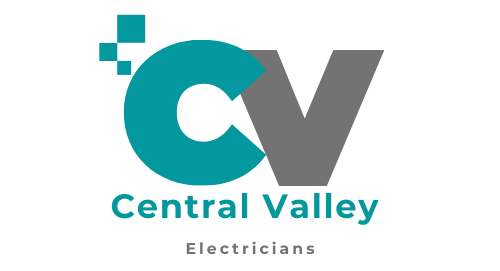


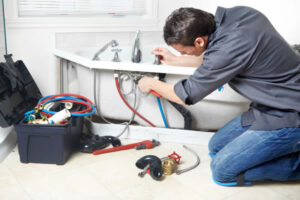

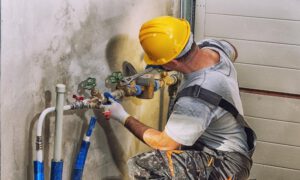
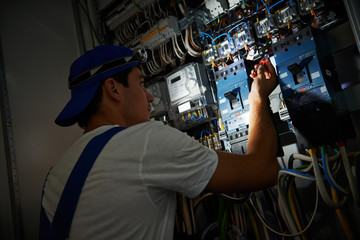
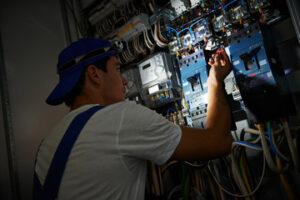 Electrician
Electrician